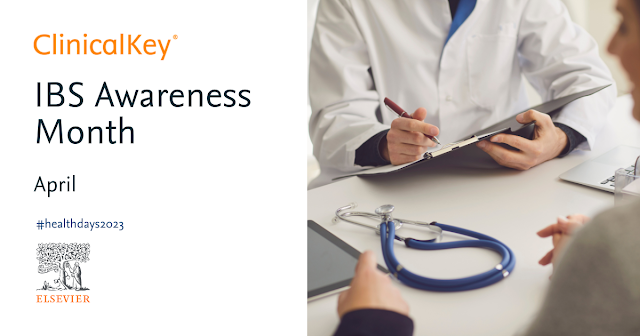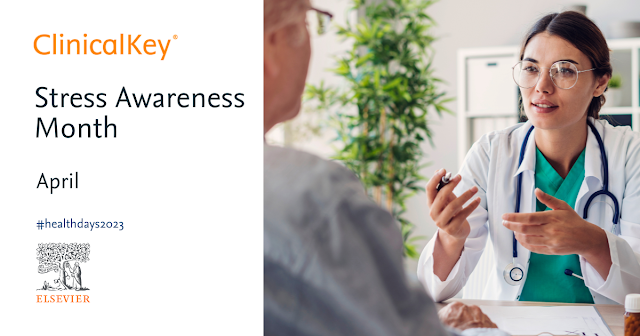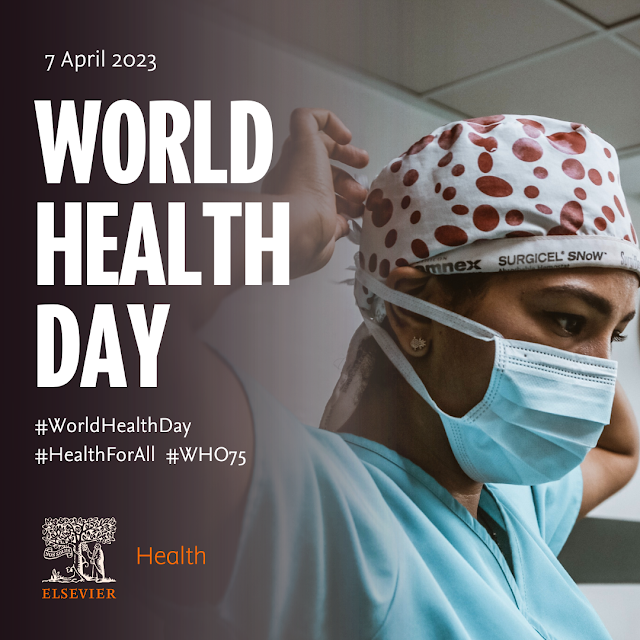What's happening on Clinical Key this April?
Clinical Key is available to UHNM staff, via NHS OpenAthens login.
Irritable Bowel Syndrome Awareness Month
It's #IBSAwarenessMonth. The more we work together to raise awareness for IBS, the greater our ability to impact positive outcomes, such as additional research, increased educational opportunities, and improved patient care. Check out Clinical Key to read more about diagnosis, complications and symptoms etc.
Stress Awareness Month
It's #StressAwarenessMonth. Join our free Elsevier’s Mental and Behavioral Healthcare Hub, where you can access clinical resources to help your patients. You’ll also find resources to support your own resilience as you care for patients in challenging environments.
April 2nd – Autism Awareness Day
This day is #AutismAwareness Day. To measure the success of our societies, we should examine how well those with different abilities, including persons with autism, are integrated as full and valued members. A good starting point is the Autism Clinical Overview on Clinical Key.
April 7th – World Health Day
The topic of #WorldHealthDay in 2023 is Health for All and it will be a special one, as the World Health Organization will observe its 75th anniversary. At Elsevier Health, our goal is to improve outcomes for the benefit of every patient; therefore we invite you to visit Clinical Overviews, available on Clinical Key.
April 11th – World Parkinson’s Awareness Day
#Parkinson’s is different for everyone; different symptoms, different experiences. Treating patients with Parkinson’s can be challenging but you have a great tool to support you. Check out Clinical Key to get more information on diagnosis, symptoms etc.
Need more help?
Complete our online tutorial Getting Started with Clinical Key to learn more about how Clinical Key can help you.





Comments
Post a Comment